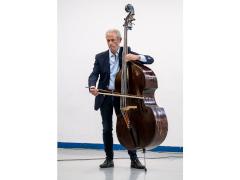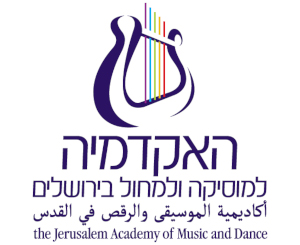
In 2023, JAMD will mark its 90th anniversary, and I could speak about our long tradition of excellence, about the recent prizes awarded to two of our graduates, about our innovative projects – but I choose today to speak about the JAMD community.
JAMD has close to 800 students learning in four faculties. About 9% of our student body is from abroad, not including foreign exchange students, some of whom decide to stay to pursue a degree. In Israel, we have students from the north, East Jerusalem, the Negev and the Palestinian territories. Through the art of music and dance, a connection is formed between students.
When a student from Tekoa plays music together with a student from Sheikh Jarrah, each one goes his/her own way afterwards – but each becomes aware of the other and there is mutual respect. The communication between them is deep, based on shared artistic activity. This connection occurs all the time at JAMD, whose role is not only artistic but also societal. At JAMD, students acquire tools for development of creative expression. We teach not only classical music but also many other genres and instruments. We have a jazz department; an Arabic musical department, in which both Arabs and Jews study; a popular music department, and many genres of dance and movement.
If we’re speaking about our role in the community, it’s to foster a connection as expressed by the idiom Town and Gown (between the residents of a town and the academic community). For the past 15 years, we have run a Community Unit named for Yitzchak Navon, which has twice won the Israel Council of Higher Education Prize for Community Involvement. Classical music is still a field that many young people are interested in studying. In the periphery, there are limited opportunities for talented youngsters to receive high quality instruction from the best teachers. We at JAMD exert efforts to bring this high quality instruction to them. For example, last Friday I was in Netivot to rehearse with a local youth orchestra that I have been working with for the past 15 years. The participants are from a variety of backgrounds and from various towns in the South. Our job is to spot exceptional talent and nurture it.
Music and Dance Education is more costly than education in other academic fields. Music requires a weekly private lesson, piano accompaniment, and rehearsals in ensembles. In addition to the support we receive from the Israel Council of Higher Education, we exert much effort in fundraising activity. Recently we received a significant grant from the Azrieli Foundation for a program of Music Education for students with special needs.
Our funding needs are significant, and I would like to use this platform to address companies and businesses that set aside budget to support the community. When you provide a scholarship for a JAMD student who contributes to the community, you are supporting both the student and the community project in which he/she works. The student receives not only the financial support needed, but also an understanding of the value of giving. This makes the student an agent of social change.
Many company directors or business managers have an appreciation of music and dance. Here is an opportunity to support these fields as well as be socially involved.
Thank you.

